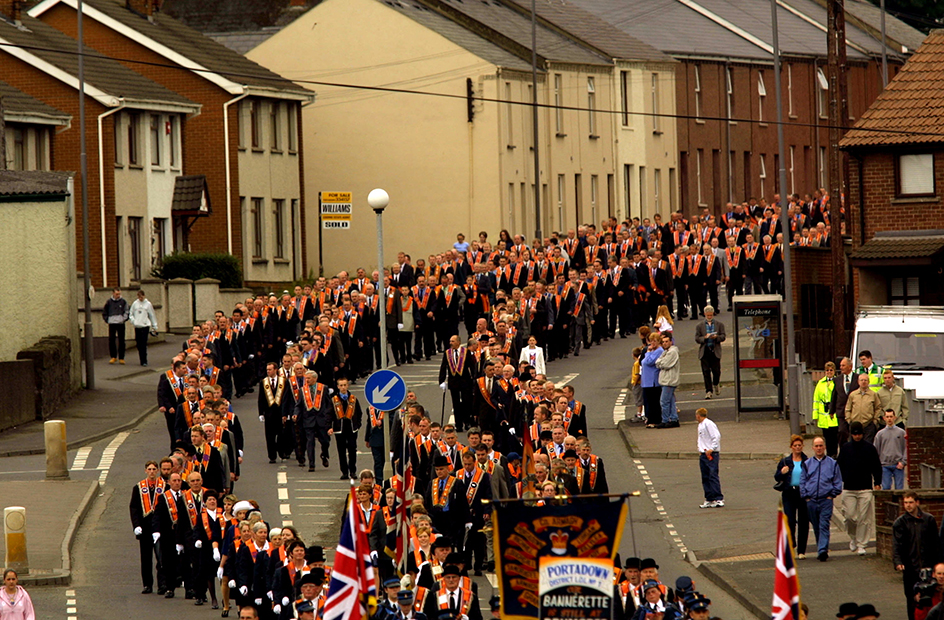Marching season, in Northern Ireland, is the period from spring to early fall when more than 3,000 parades are held. The loyal orders—Protestant organizations that support the union between the United Kingdom and Northern Ireland—organize most of these parades every year. Irish nationalist groups—mostly Roman Catholics who work for the reunification of Northern Ireland with the Republic of Ireland—lead a smaller number of parades. July is the peak marching period.

The Twelfth of July, sometimes known as Orangeman’s Day, is a public holiday in Northern Ireland. On this day, the Orange Order, the largest of the loyal orders, holds parades to celebrate the anniversary of the Battle of the Boyne in 1690. The Battle of the Boyne—in which King William III, a Protestant, defeated the forces of James II, a Roman Catholic—marked the renewal of Protestant control over Roman Catholics in Great Britain and Ireland.
Some critics of the loyal orders claim that the Protestant marches serve as a reminder of the oppression of Roman Catholics in Ireland. Many Irish nationalists respect the loyal orders’ right to hold the parades but insist that the organizations consult with local residents before setting out on marches. In 1997, the independent Parades Commission was established to regulate parades in Northern Ireland and to settle disputes over marching routes.
See also Bloody Sunday; Boyne, Battle of the; Orange Order.
